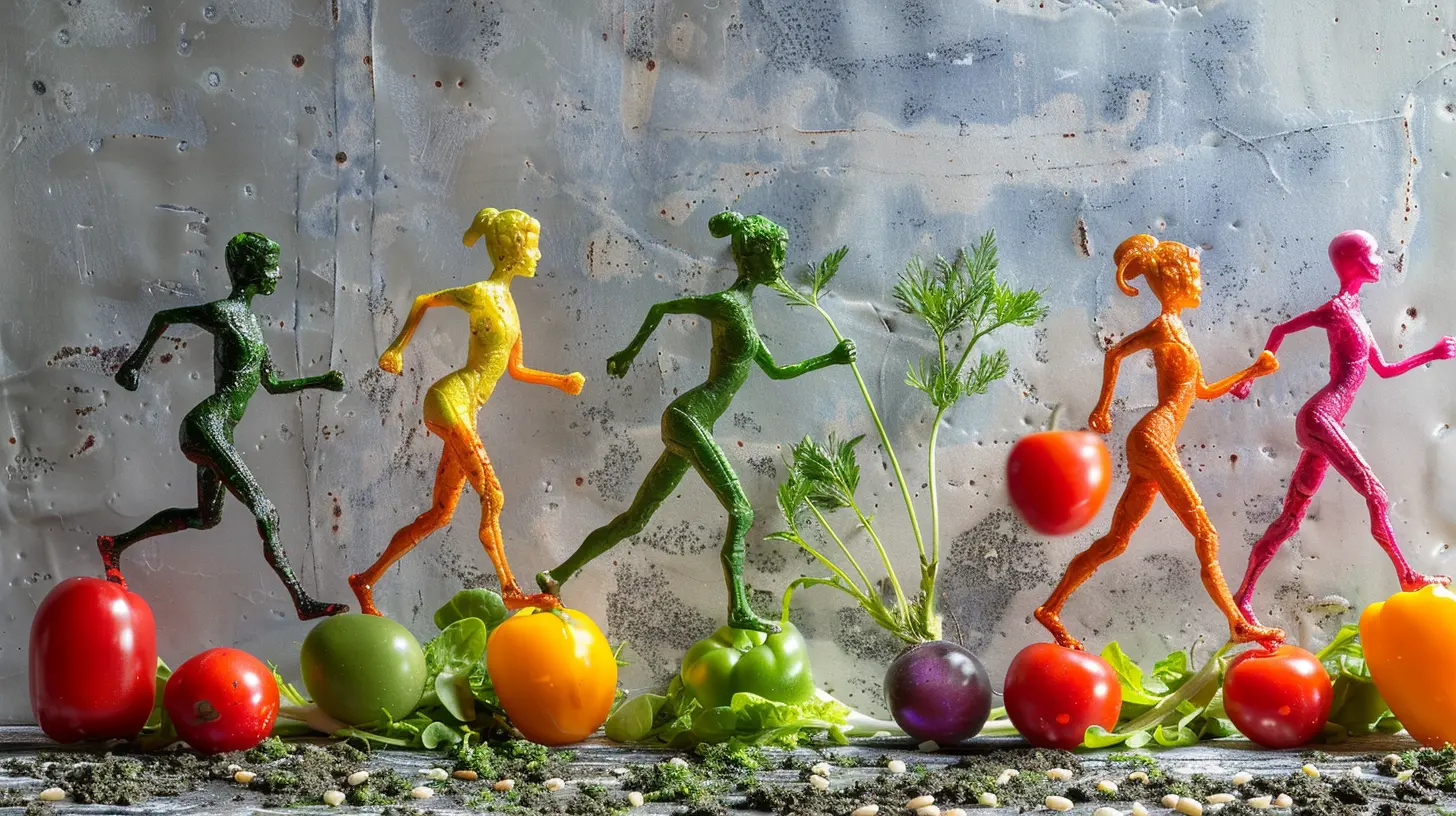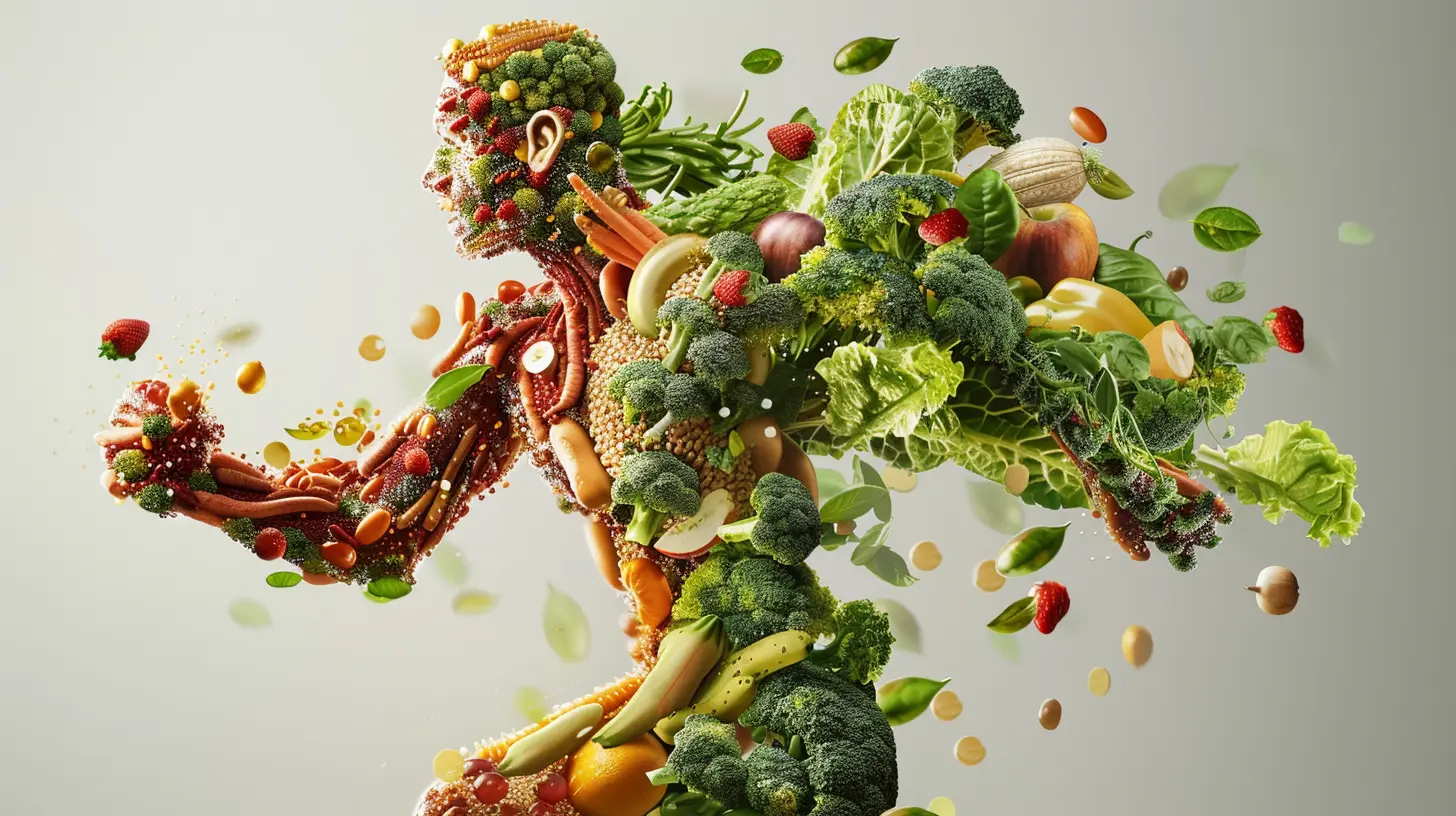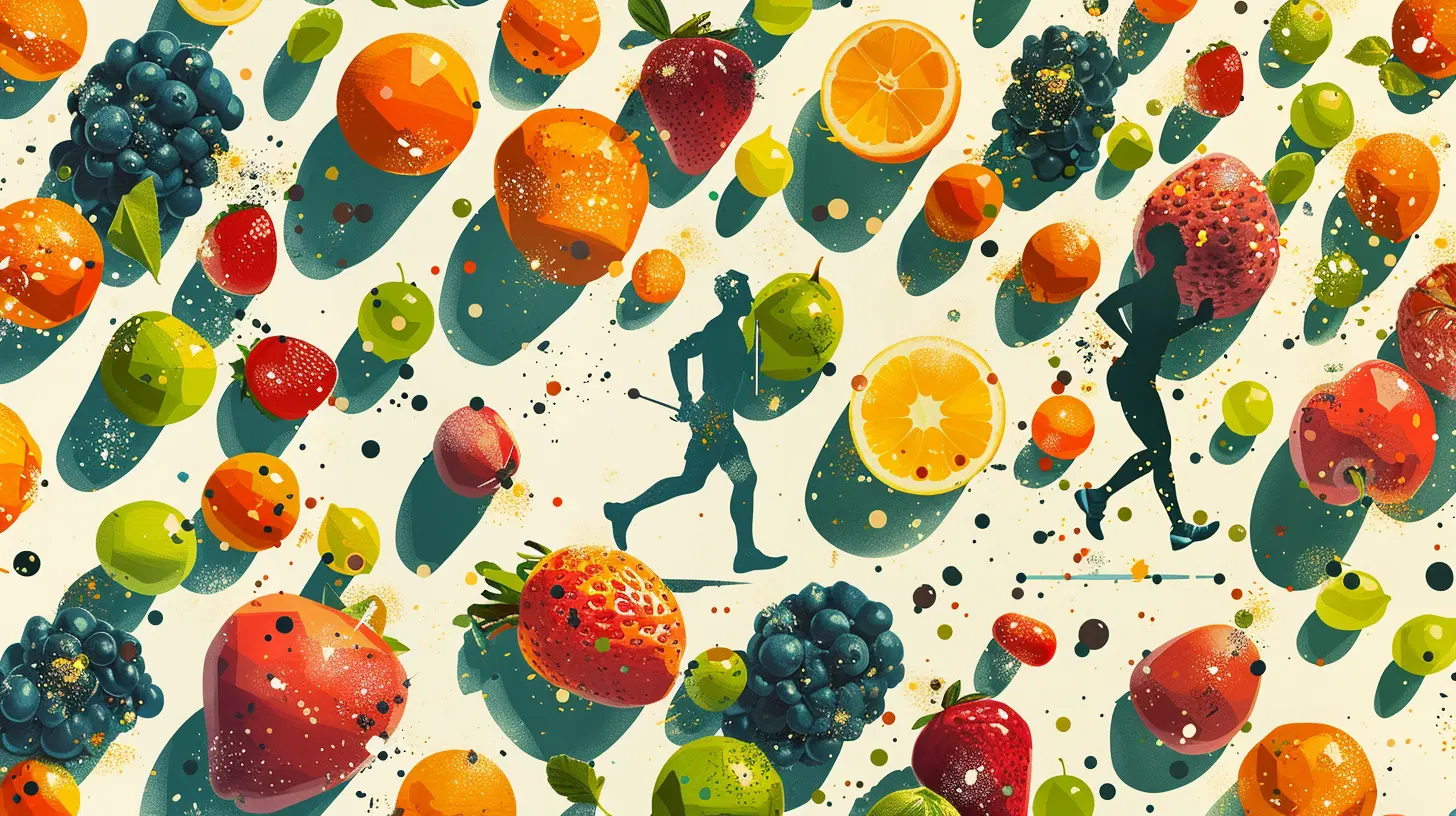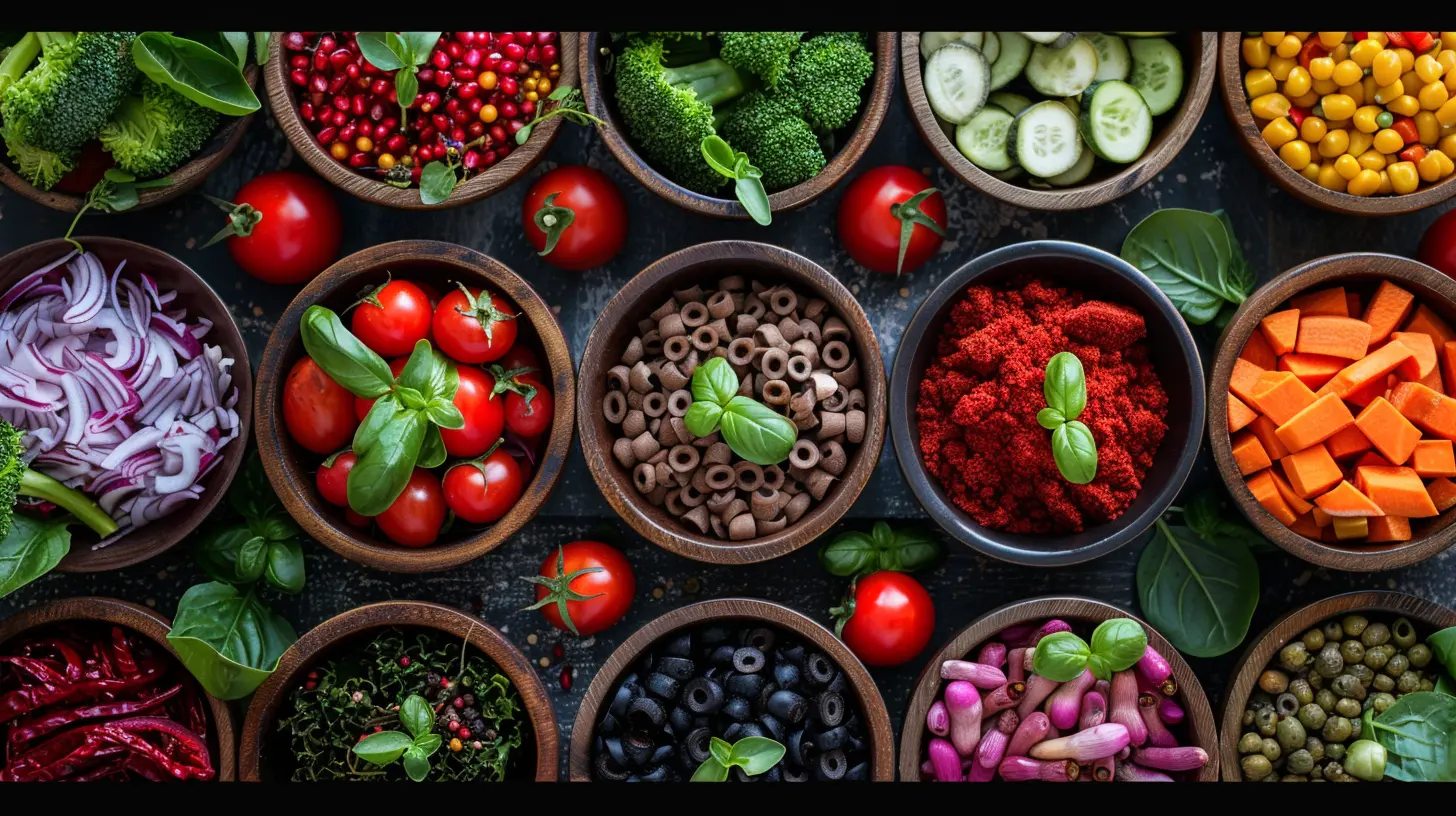Running a Marathon on a Plant-Based Diet: Is It Possible?
14 September 2025
Running 26.2 miles is no small feat. It takes months of training, loads of discipline, and a ton of fuel — literally. But what if you’re skipping out on meat, dairy, and all animal products? Can you still crush a marathon living solely on plants?
Spoiler: Absolutely. But let’s break that down, because if you’re training for a race and wondering how to power your body with plants, you’re not alone. Whether you’re already plant-based or just curious if it’s doable, you’ve come to the right place.
Why Even Go Plant-Based?
Before we jump into the “how,” let’s talk about the “why.” People go plant-based for tons of reasons — ethical concerns, environmental impact, or just wanting to feel healthier.But athletes? They often turn to plant-based diets for performance and recovery. Think about it: plant-based foods are naturally packed with antioxidants, fiber, and complex carbs (your muscles’ favorite fuel). That means faster recovery, less inflammation, and more energy.
Heard of Venus Williams or ultramarathon runner Scott Jurek? Yup — both plant-based. So, you’re definitely in good company.
Myth Buster: Can You Really Get Enough Protein?
Alright, let’s address the elephant in the room — protein. The biggest question any vegan or vegetarian gets is, “But where do you get your protein?” And when it comes to endurance sports like marathons, the concern gets even louder.Here’s the thing: you can absolutely get enough protein on a plant-based diet. You just have to be a little more mindful about it.
Top Plant-Based Protein Sources for Runners:
- Tofu & Tempeh: These soy-based champs are protein-packed and super versatile.- Lentils & Chickpeas: Great in soups, stews, or salads, and full of iron and fiber too.
- Quinoa: A complete protein (yes, all 9 amino acids!) and crazy easy to cook.
- Nuts & Seeds: Almonds, chia seeds, pumpkin seeds — all great snacks or smoothie toppers.
- Protein Powders: There are some solid plant-based blends out there — go for ones with pea, brown rice, or hemp protein.
Running a marathon doesn’t mean downing protein shakes every hour. But tracking your intake and diversifying your protein sources? That’s key.
Carbs Are Your Best Friends
Carbohydrates are a runner’s holy grail. And guess what plant-based diets are full of? You got it — carbs. Whole grains, fruits, veggies, legumes — it’s like carb heaven.You’ll want to aim for complex carbs like oats, brown rice, sweet potatoes, and whole grain pasta. These give you long-lasting energy to crush your training runs (and that finish line photo op).
Pre-Run Carb Ideas:
- Oatmeal with banana and almond butter- Whole grain toast with avocado and hemp seeds
- Smoothie with berries, spinach, plant protein, and oats
When you're training for endurance, carbs are not the enemy. They’re your built-in fuel tanks.
But What About Iron and B12?
Great question. Some nutrients need extra attention when you’re plant-based:Iron
Iron helps your red blood cells carry oxygen — kind of a big deal for runners. Plant-based eaters can get iron from:- Lentils
- Tofu
- Spinach
- Fortified cereals
- Pumpkin seeds
Pro tip: Pair these with vitamin C-rich foods (like oranges or bell peppers) to help your body absorb iron better.
Vitamin B12
This one’s not naturally found in plants, so a supplement is often necessary. B12 helps with energy metabolism and nerve function — again, crucial for runners. Look for fortified plant milks or take a weekly supplement.Omega-3s
You don’t need fish oil to get your Omega-3s. Chia seeds, flaxseeds, walnuts, and algae-based supplements can do the trick.Sample Marathon Training Meal Plan (Plant-Based)
To really see how this works in practice, here’s a simple daily breakdown for a long training day:Breakfast (Pre-Run Fuel)
- Whole grain toast with peanut butter and banana- Cup of black coffee or green tea
Post-Run Recovery
- Smoothie with:- Spinach
- Frozen blueberries
- Chia seeds
- Plant protein powder
- Almond milk
- Oats
Lunch
- Quinoa bowl with:- Roasted sweet potatoes
- Black beans
- Avocado
- Corn
- Salsa
Snack
- Hummus with carrot sticks and whole grain crackers- Handful of walnuts
Dinner
- Lentil stew with brown rice- Steamed broccoli and kale (with lemon juice and tahini)
Hydration
- Water, coconut water, and electrolyte drinks — especially after long runsYou don’t need to eat like a monk to eat plant-based. Just real food, colorful plates, and a little planning.
What About Race Day?
All that training — you want to be sure you’re fueled right for race day.The Day Before (Carb-Loading Time)
This isn't just an excuse to pig out on pasta — you want to up your carb intake to top off your glycogen stores.- Whole wheat pasta with marinara and roasted veggies
- Sweet potato with black beans
- Rice bowls with tofu and teriyaki sauce
Stick with foods you know your body handles well. Avoid anything funky or ultra-fibrous the night before (looking at you, raw kale salad).
Race Morning
Keep it light and high-carb:- Oats with sliced banana and maple syrup
- Toast with almond butter and jam
- Small smoothie
Make sure to eat 2–3 hours before the race so you’re not running on a full stomach.
During the Race
Fuel every 45 minutes or so with gels, chews, or sports drinks. Yes, they can be plant-based too — just check the labels. Some great brands cater to vegan athletes now.Recovery the Plant-Based Way
You crossed the finish line. High five! Now what?Post-Race Recovery Tips:
1. Protein + Carbs Combo: A smoothie or rice and beans within 30–60 minutes helps rebuild muscles.2. Hydration: You probably sweat a bucket — refill those tanks with water and electrolytes.
3. Anti-Inflammatory Foods: Berries, turmeric, leafy greens — help reduce soreness naturally.
4. Rest and Sleep: Not food, but essential. Your body needs downtime to rebuild stronger.
Common Mistakes to Avoid
Going plant-based while marathon training is totally achievable — but not if you fall into these traps:- Not Eating Enough: Plants are less calorie-dense. You may need to eat more than you're used to.
- Ignoring Protein: It matters, especially for recovery.
- Skipping Supplements: B12 and Vitamin D (especially in winter months) are non-negotiable.
- Trying New Foods on Race Day: Stick with what you know works during training runs.
Remember — food is fuel. If your energy’s low or your workouts are dragging, tweak your intake. Your body talks to you — listen to it.
Real Talk: Is It Harder Than a Meat-Based Diet?
It's different, not harder. Once you know what your body needs, it becomes second nature. You’ll discover new recipes, find your go-to meals, and probably feel lighter (not just physically, but knowing you’re nourishing your body with powerful plant energy).It’s kind of like going from a flip phone to a smartphone — it takes a sec to adjust, but once you’re in, there's no going back.
Final Thoughts
So, can you run a marathon on a plant-based diet?Heck yes, you can.
With the right planning, smart food choices, and consistent training, a plant-powered diet can not only sustain you — it can help you thrive. Whether your goal is a personal best or just crossing the finish line with a smile, plants have your back.
Lace-up, fuel smart, and trust the process. Your plant-based marathon journey is totally possible — and maybe even your secret weapon.
all images in this post were generated using AI tools
Category:
MarathonAuthor:

Uziel Franco
Discussion
rate this article
1 comments
Leona Roth
What an intriguing topic! I'm curious about the energy levels and recovery times of plant-based marathon runners. Do they face unique challenges compared to traditional diets? Looking forward to more insights!
October 1, 2025 at 3:12 AM

Uziel Franco
Thank you for your interest! Plant-based marathon runners can experience unique challenges, such as ensuring adequate protein and calorie intake, but many report improved recovery times and energy levels. I'll explore these topics further in future insights!

![Why [Player Name] is the Most Feared Player in the League](/pictures/blog/small/why-player-name-is-the-most-feared-player-in-the-league_2.webp)
